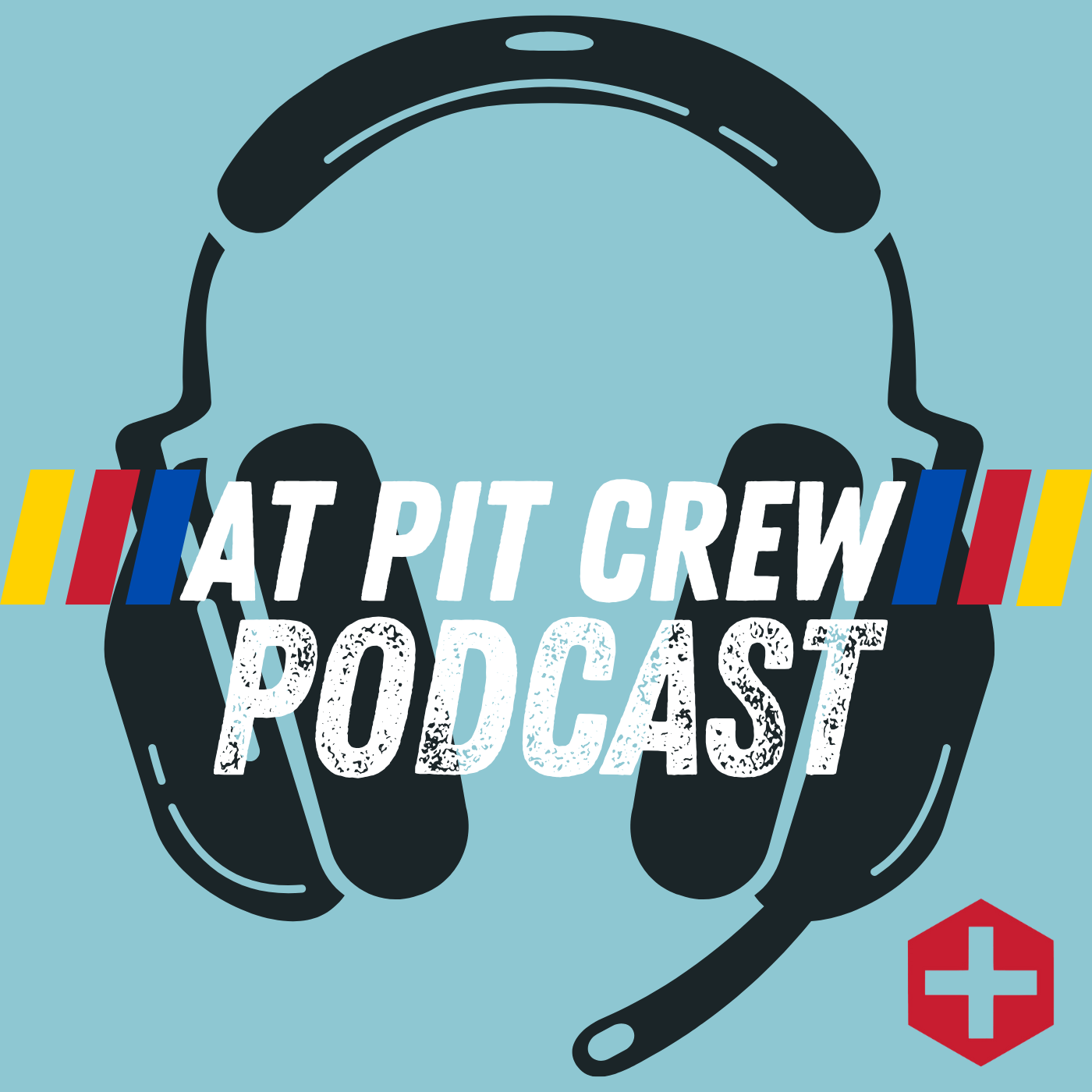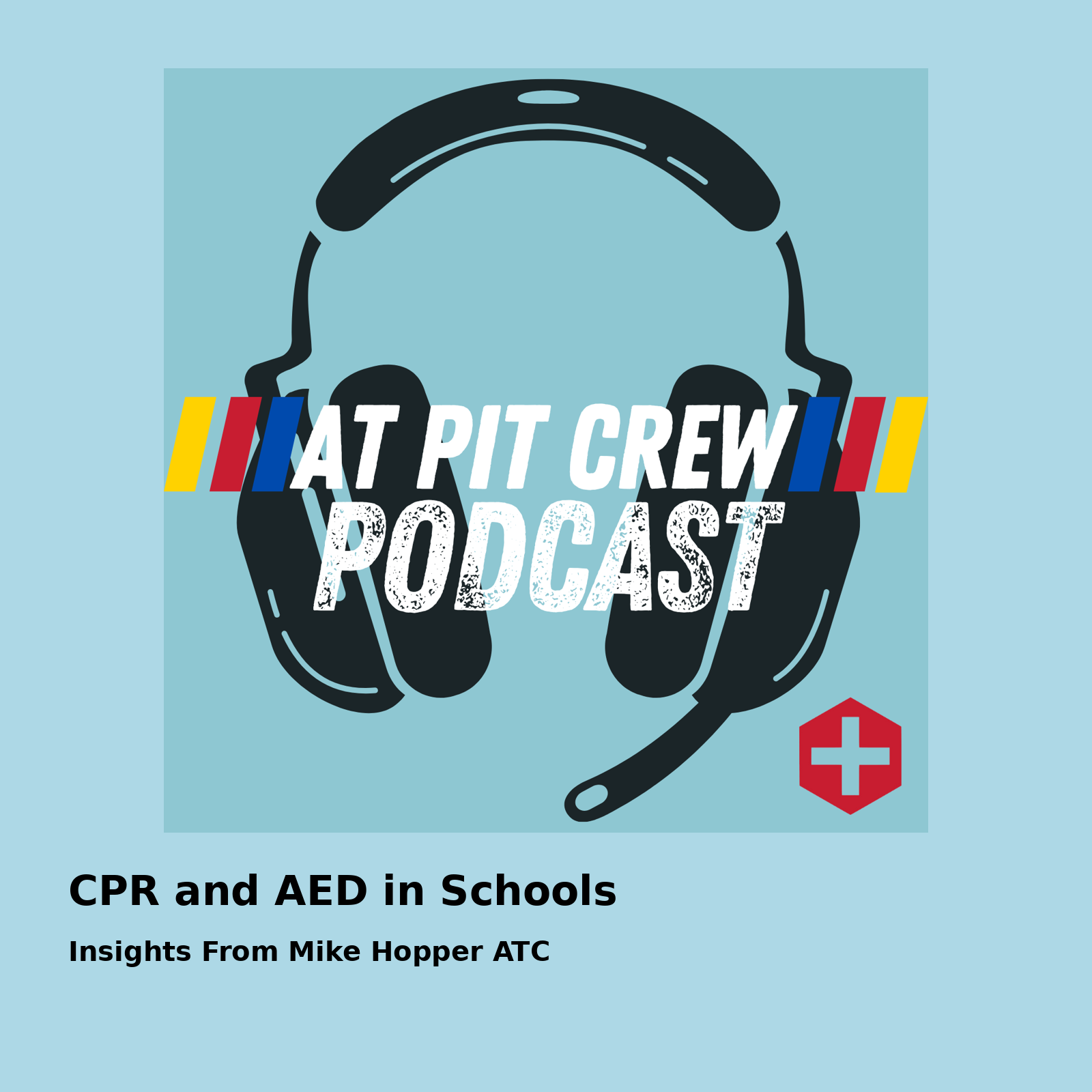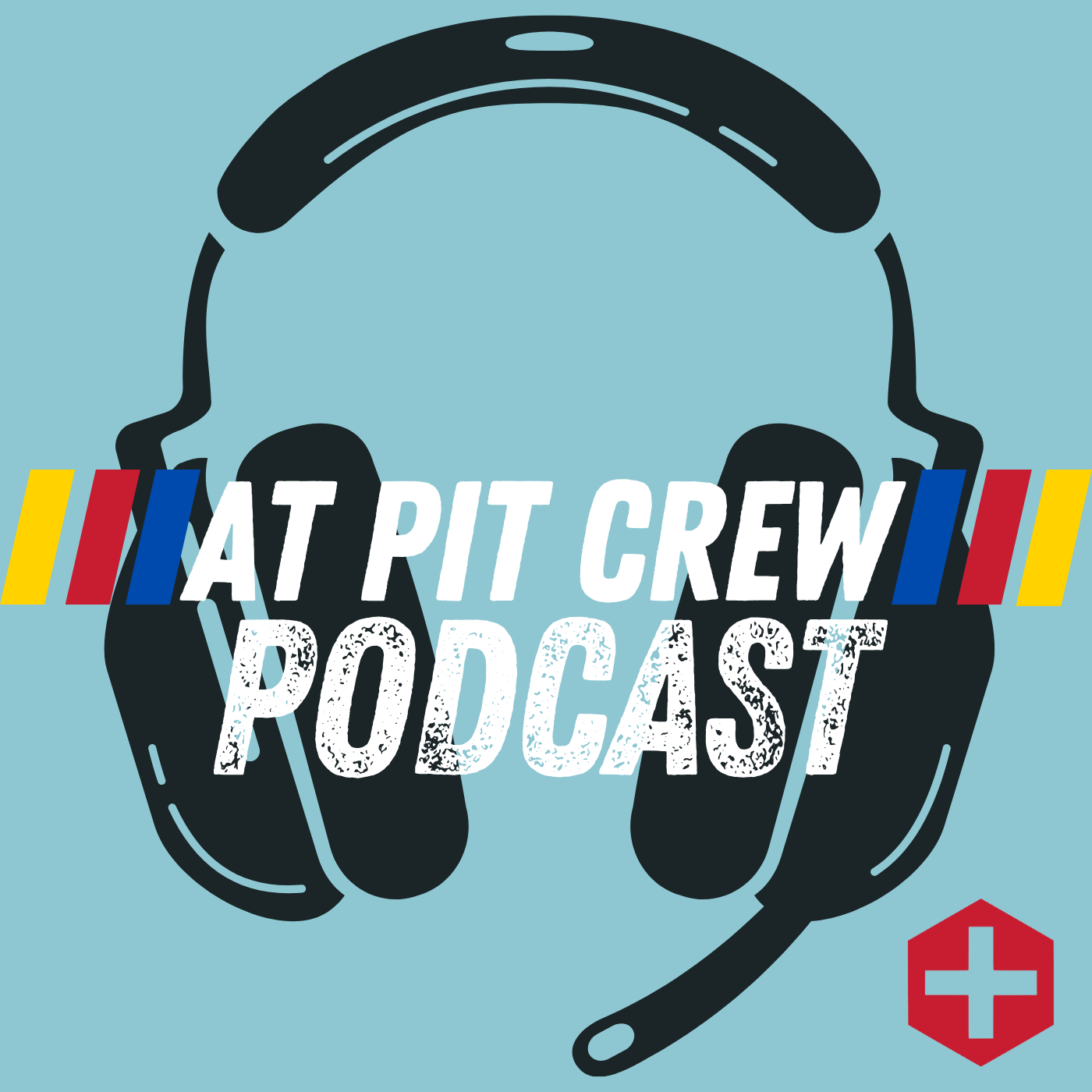Episode Transcript
[00:00:02] Speaker A: Welcome to the @pit crew podcast. This high energy show dives deep into the world of sports emergency care. Join us as we explore cutting edge strategies, real world experiences and expert insights to help you step up your game in emergency care. We've got the tools, tips and stories you need to be ready when seconds matter. It's time for the @pit crew podcast. We have the green light in three, two, one.
[00:00:32] Speaker B: Hello. Welcome to the 18 pit crew podcast. I'm Ray Castle, your host and I'm here today Jason Cates at Cabot High School. Jason, we're here today, very special day is interprofessional sports emergency care course. So welcome to the show, Jason, Glad to be here. Thanks for having me. Thanks for being here. So this course today, it is interprofessional. We have a number of different groups that fantastic support from the Arkansas Team Association, Arkansas Department of Health, Department of Education, Arkansas Athletic Trainers Association.
We've got Metro ems. We've got Cabot Emergency Hospital. Yep.
State School Nurses, School Nurses Association, State Stadium Association.
So we've got a little bit of everybody. This is kind of a, kind of a backdrop. Jason, you and I were talking in the audience. This course started several years ago when I was working at lsu.
We had, there was a catastrophic incident at Southern University. They were playing in Georgia and had a catastrophic neck injury. And Ron at the time, Ron at the time, Ron Corson reached out and said, hey, we want to do a course. And it said bring awareness of this type of format. And we got Lovey Tavron who is head trainer. She'd been on the job for a week.
And I go there and just phenomenal care. And Devon is just a fun. If you ever get a chance to meet Devon, I encourage anybody to do that. Just a phenomenal person.
In any case, we started this in bringing people together that solve problems Fast forward. We did two or three, we did several courses last summer. We did1@lsu as well. And we start having these very robust conversations that otherwise people don't have. And the genesis of our this was actually I was up in for the audience. I was here in mid May covering a professional event and I called, called Jason and said, hey, I want to cut if I have time, I want to come by, let no folk not together from here in Little Rock and said, hey, come by. And by the way, and had a serious incident that occurred in the state. Correct. And there were. And the question that begs is, you said this yesterday is yeah, why is we still having these issues in 20, 20, 2020. And then I think you asked about. We've done a course like this before in the past. And so basically a month together, we put this together and I know I sent you an email and pretty much 24 hours later it was all. And you're, you're not only the head athlete trainer at Cabot High School, you have five staff, six staff, five staff, five athlete trained staff. A multi interdisciplinary group, fantastic group. But also you are the chair of the activity association, sports medicine advisory committee, council committee, committee. And that. Who all does that comprise of?
We got a little bit of everybody. And so state superintendents, rural education ADS association, coaches association. Then we have cardiology, neurology, orthopedic, sports medicine, families practice sports medicine, athletic trainers, school nurses. I think I already said, you know, Mental Health Officials Association. I mean, anybody that touches a kid in secondary school sports, they have to see that the table.
So that way we can all put our heads together collectively on how do we, how do we make healthcare not, not for Cabot Public Schools, like you said. I mean, we're very fortunate. And thank you to my administration that, you know, we have athletic trainers, we have fantastic school nurses, we have physical therapists, we have strength and conditioning coaches. But if we go to Lake Village, Arkansas, very rural, an hour away from anything, no care.
How do we still implement those policies to make sure the kids are safe? I grew up in north Louisiana, about two hours south of there, so I know that very well as I65, you know, we have hostess hospitals probably 45 minutes away, two ambulances. I mean best. So in the new county, it does say this, but for sports or any other things, you get a serious injury, you better hope you're either closer to that or it's definitely.
I like to refer to as a lean environment.
And we have tons of lean environments, not just here, not in Louisiana, but all over the country.
And this is. But it also impacts what.
You know, because we assume it's here. Like you're. You're In a what, 20, 25,000 habit? Yes, that I think that actually EMS is going to. They have other things going on, depending on what it is. So we have to be prepared for those. All types of these type of emergencies. And this is what this is for today. I mean, it was for audience.
I talked to Jason, excuse me. And I said we could think we can do this. And within 24 hours it was like, okay, all these groups were on board. I'm like, okay, we're doing this. It's just. And we're here this morning and we're getting ready to get started in about an hour, less than an hour. And we just got a fantastic lineup and really just facilitating and bringing people together. I'm looking forward to the conversations that were going to happen between the meeting, between that and the lab sessions.
All those things come into play afterwards. Yeah. And I think what's been the response so far from the need for a meeting like this among your. Among the various stakeholders you work with? This is something that we've tried to do off and on for a couple years.
And we have the passion, we have the people, we just. We're lacking the facilitators.
And so that's where. When you were here, we had that first initial conversation and you said that you thought that you could put us on the schedule. And I emailed the stakeholders.
Everybody was like, go, just. Just find a day.
We'll have the resources there. And we did that. So Basically today is July 7th. Yeah. It seemed like a. You know. Yeah. A month ago. But that course, you know, what we. I guess what we've done is like, here's a template, and we're giving you just the find. The speakers are in the picture and people filling in.
Fantastic Lab faculty coming in. Yes. And we're looking forward to having a lot of fun today. It's gonna be a lot of fun. And I think one of the best things I'm looking forward to, I know from having done this several times, is at the end of the day, we'll have those key stakeholders come in and they're going to hear a lot during the day. And. Okay, once we've talked about this already, is what. What's the. What's the next step? Let's not let this die off and go to a regular meeting. Yeah. What makes it happen? And I just want to give a shout out to the.
Y' all done a great job having just tremendous support for the.
Just the bias buy in. I think it's just fantastic that you'll have that. You all have that here in Arkansas.
You don't have to put things into law. Right. Is that we can talk about the legislature not knocking leg, but, yeah, we want to keep an eye out there so you can do the things that need to be done. And, you know, everybody's on the same playing field. And I think they just got a fantastic. I'm looking forward to meeting these different stakeholders today because they all share a different perspective. They have one goal, and that is ensuring health and safety in secondary schools. And then that also extends out to colleges and Youth sports and things like that as well. So yeah, it's good deal, good day. So yeah, the people are excited about it. I think we're going to make a difference in Arkansas. We're coming right off. Today's our first day back in Arkansas. We have a mandatory two week dead here in but you can touch kids, talk to kids, do anything with kids. Today's the first day back. Everybody's ready to go. Lots of school nurses, athletic trainers, EMS. Everybody's here. They're ready to look at their EAPs as they get ready for this next school year and they're coming here to learn and brush up and get ready. I think also don't want to pass this opportunity up is to thank Clinton McDonald. He's coming in. He's a former retired NFL player. He played Memphis, the right super bowl champion. Which college Memphis still lighting up right down the road And I think he'll provide the audience. This is the spectrum.
He's in a small town and having care and moving through that and you know having having phenomenal resources and or at least access even when he was. I'm. I'm just looking forward to hearing that story.
Had a, you know had in his career has been probably towards his professional career had injuries but he also was able to come back to come back and play and play. Yep. And the biggest thing with that is also is talking to him. As we're getting ready for this his perspective has totally changed. He's a father now, he's an uncle now and so he's got nephews and nieces that are playing secondary sports. He's got a daughter, is a high level volleyball player and you know a lot of schools if you have that one outreach athletic trainer one's better than none. And it's about having whoever that is as a. Is a healthcare provider can be there to have the tools they need even getting fans involved, spectators involved.
We have LA resource. Right. So we got to get ready to get to work. Right. We're ready. So this is Ray Castle. More important, this is Jason Case. This day is the ATP Crew podcast and we are out of here.
[00:09:36] Speaker A: Thank you for joining us on the @Picrew podcast. We encourage you to to like subscribe and join our community.
For more information about this podcast show visit www.actionmed.co podcast this show is a production of Action Medical Consultant LLC.
The medical information provided within this program reflects the opinions of the hosts and guests and is intended for informational and educational purposes only.
It should not be considered as a substitute for professional medical advice, diagnosis, or treatment.
Always seek the guidance of your healthcare provider with any questions you may have regarding a medical condition or treatment.


